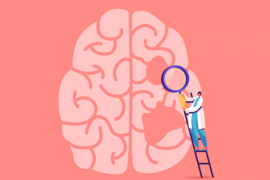By Emmy Bawden
It’s no secret that good nutrition is key to getting the most out of your workouts, but if you’re confused about what to eat and when, you’re not alone. Here are some science- backed tips to get you started.
WHAT TO EAT BEFORE EXERCISE
Noshing before working out is a game-changer for energy and performance. Your pre-workout fuel should be carb- focused to help prevent dips in blood sugar that occur during exercise and affect performance. Carbs consumed over two hours before exercise will also replenish stored muscle glycogen, which is released and used for energy (particularly in intense and endurance exercise). Diets that are too low in carbs have been associated with muscle fatigue from depleted glycogen, resulting in negatively impacted performance and recovery.
A general recommendation for eating carbs before moderate- intensity exercise such as hiking is to eat 0.5-2 grams per pound of body weight one to four hours beforehand. For reference, a banana is 30 grams and 1⁄2 cup of oatmeal has 15 grams.
Workout recovery is optimized if you have some protein before your workout as it allows amino acids (protein building blocks) to be available for your muscles to rebuild and repair. Pairing carbs with about 10-20 grams of protein creates a better muscle refueling and building response, and reduces cortisol (aka main stress hormone that breaks down muscle).
Lastly, if you are exercising within an hour, choose low-fiber and low-fat choices, as these are less likely to cause digestive issues during your workout. (Tip: Watch out for protein powders with high fiber contents from added inulin or chicory root!)
The general rule of thumb is to eat one to four hours pre-workout, giving more time before intense exercise like HIIT workouts and spin classes. Here are some ideas on what to eat if your workout starts in:
- More than two hours: Veggie stir fry with lean protein and soba noodles
- Less than two hours: One to two slices of whole grain bread, one to two tablespoons of nut butter, and a half or whole banana
- One hour or less: 6 oz. of low-fat Greek yogurt and one-half cup berries
If you find yourself struggling energy-wise to get through a workout, you may need to up the amount of pre-workout fuel you’re eating (especially carbs) or try eating a little closer to your workout by keeping energy bites or nutrition shakes in your gym bag for quick fuel (OWYN shakes are my pick for this). Also, if you tend to eat early or small dinners, you may have less energy for morning workouts, and a pre-workout mini-breakfast could help.
WHAT TO EAT AFTER EXERCISE
Afterwards, your body’s goal is to rebuild glycogen stores and repair muscle proteins, and the ideal window for supporting this with post-exercise fuel is within 30-45 minutes. To maximize glycogen resynthesis and muscle protein growth, shoot for 50-75 grams of carbs and at least 10-20 grams of protein. Including antioxidant-rich fruits and veggies also enhances recovery. Try a veggie omelet with avocado and breakfast potatoes; a smoothie with yogurt, banana, berries and flaxseed; or a power bowl with quinoa, veggies, chickpeas and tahini.
WHAT’S FASTED CARDIO AND SHOULD I DO IT?
Fasted cardio is essentially exercising on an empty stomach after waking. While many are interested in its proposed ability to burn fat more effectively, this outcome is not backed by science and instead we see exercise intensity and volume is compromised. On the other hand, exercising in the fueled state first thing has been shown to improve performance and endurance by replenishing liver glycogen, steadying blood sugar and providing energy.




